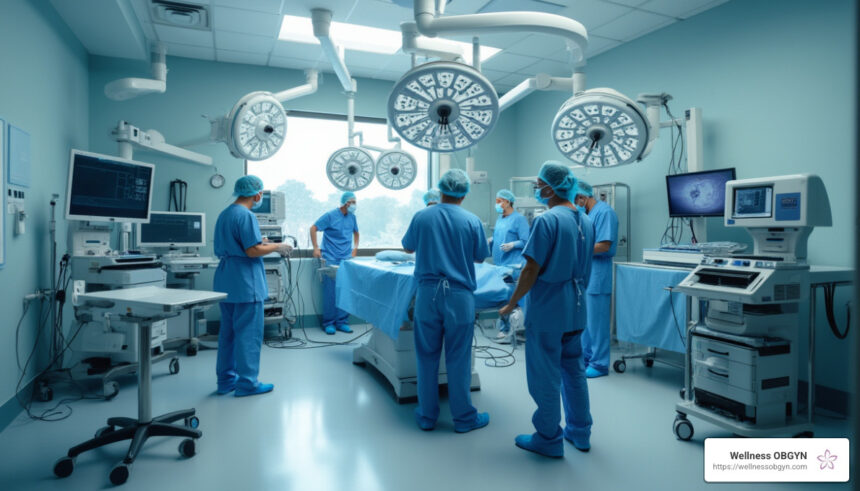Prenatal care involves a series of check-ups and tests you receive throughout pregnancy, helping to monitor your health and the development of your baby. A range of technologies is used during these appointments to gather information and track progress. Understanding these tools may help you be more prepared for what to expect during your visits. Here are some different types of technology that may be utilized:
Advanced Ultrasound Imaging
Ultrasound imaging is a typical procedure used during pregnancy. It uses sound waves to create pictures of the baby in the uterus. These images provide information about the baby’s growth and anatomy.
Early in pregnancy, practitioners may perform a transvaginal ultrasound. For this, they place a small probe inside the vagina to get a clearer view of the developing fetus and reproductive organs. As the pregnancy progresses, a transabdominal ultrasound becomes the standard method. They can apply gel to your abdomen, and a handheld device called a transducer is moved across the skin.
This sends sound waves through the abdomen to create an image on a screen. Doctors use these images to assess the baby’s size, position, and overall development. They can take specific measurements to track growth against expected milestones. They can also evaluate the location of the placenta and the amount of amniotic fluid.
Fetal Monitor Technology
A fetal monitor serves as another tool in prenatal care, especially as the due date approaches or during labor. This device tracks the baby’s heart rate and the mother’s contractions. One type, the external fetal monitor, uses two belts placed around the mother’s abdomen. One belt holds an ultrasound transducer that records the baby’s heart rate, while the other belt has a sensor that measures the duration and frequency of contractions.
The healthcare team views the monitor’s data on a screen or reads it from a printed strip of paper. This setup allows them to observe the baby’s heart rate patterns in response to movement and contractions, providing a real-time assessment of the baby’s well-being.
Specialized Tests
Depending on individual circumstances, healthcare providers might recommend specialized tests that offer more detailed genetic information. One test involves a healthcare professional guiding a thin needle into the uterus through the abdomen to collect a small sample of the amniotic fluid surrounding the baby. They then analyze the cells in this fluid for specific genetic conditions. Healthcare providers typically suggest these tests based on factors such as maternal age or family medical history. If they recommend these procedures, your healthcare provider will explain how they are performed.
Additional Screenings
Beyond the standard tests, additional screenings are available to check for specific conditions. Blood tests are a routine part of prenatal care. Practitioners use these to check for things like your blood type, Rh factor, and iron levels. They also screen for certain infections. Glucose screening is another test, usually performed early in pregnancy. This test checks for gestational diabetes, a type of diabetes that develops during pregnancy.
Schedule Prenatal Care Visits
The technologies doctors use in prenatal care are tools that support you and your healthcare provider throughout your pregnancy journey. They provide valuable information to help monitor health and development from the first trimester to the last. Regular appointments allow your care team to use these technologies at the appropriate times. If you are ready to begin your prenatal care, reach out to a healthcare provider to schedule your first visit.














